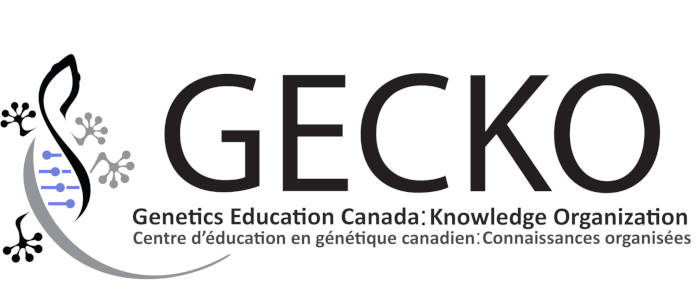
Download the PDF here
Informative genetic testing is currently available for individuals with clinical symptoms suggestive of Huntington disease (HD) and family members of individuals diagnosed with HD. Current research is focused on understanding the cellular basis of HD to inform future treatments and provide the basis for a possible cure. Numerous human and animal clinical trials are planned or underway.
The benefits of genetic testing for HD are limited and mainly relate to an individual’s perception of the psychological advantages of knowing whether he/she is predisposed to developing HD. At present, there is no cure or effective preventive therapy for the disease however a number of promising clinical trials are underway.
Updated July 2019
What is huntington disease?
HD is a neurodegenerative disorder characterized by progressive deterioration of cognitive and motor functions, accompanied by various psychiatric/behavioural disturbances, especially depression. In Canada, the estimated prevalence rate is 13.7 per 100,000 individuals. HD is inherited in an autosomal dominant fashion. Symptoms usually begin between 35 and 44 years of age; however, the range is from childhood to over 80 years of age. The median survival is 15 to 18 years after onset of symptoms. Currently, there is no cure for HD, however a number of promising clinical trials are underway. For example, a 2017 clinical trial showed the benefit of an intrathecal medication which decreased the levels of mutant huntingtin protein in affected individuals. Currently, psychiatric and motor symptoms can be managed with pharmacological therapy.
The HD gene, HTT, is on chromosome 4 and produces a protein called huntingtin. The gene contains a region of “CAG trinucleotide repeats” in which three DNA nucleotides, Cytosine, Adenine and Guanine (CAG), are repeated over and over again. Each CAG triplet codes for the specific amino acid glutamine. CAG repeat length in the population is highly variable with normal being usually less than 27 copies (median 18). The abnormal HD gene contains an ‘expanded’ number of CAG repeats (36 or more) leading to an abnormal huntingtin protein with a poly-glutamine expansion (lots of extra glutamines) that may have altered structural and biochemical properties. A variety of cellular pathways are known to be affected in HD but exactly how the mutated huntingtin protein causes the symptoms of HD remains unknown.
Red Flags to consider genetic testing or genetic consultation
- Individuals with clinical symptoms suggestive of HD
- Family members of individuals diagnosed with HD
As part of the genetic testing process, consultation with a neuropsychiatrist is often recommended.
What does the genetic test result mean?
Individuals with more than 36 CAG repeats will most likely develop the features of HD, although between 36 and 39 repeats there is reduced penetrance of HD features. Individuals with between 27 and 35 CAG repeats are unlikely to develop any symptoms of HD (referred to as an “intermediate allele”) but are more likely to pass on an expanded number (> 36) of CAG repeats to their offspring. This is particularly true of men with an intermediate allele.
A well-established inverse correlation between CAG repeat length and age of onset exists – the greater the repeat length, the earlier the age of onset. However this cannot be used to predict the exact age of onset in any one individual. Traditional adult-onset HD is usually associated with CAG repeat length between 36 and 55 whereas onset in adolescence or early adult life occurs when CAG expansion is above 60 repeats.
Anticipation, the phenomenon in which increasing disease severity or decreasing age of onset is observed in successive generations, can occur in HD and is more likely when the genetic mutation is inherited from the father because the number of CAG repeats can increase significantly during spermatogenesis.
A man or woman with HD has a 50% chance of passing the gene with the expanded number of CAG repeats to a child.
How will genetic testing help you and your patient?
Genetic testing for HD can result in:
- Assistance with life planning (e.g. decisions about having children, career, retirement and long-term care issues)
- Provision of relief from uncertainty
- Increased feeling of control
- Relief from worry about developing the disease and knowledge that children are not at risk of inheriting the disease, for those who test negative.
Are there harms or limitations of genetic testing?
Currently, there is no medical benefit to knowing one has the HD gene mutation, although there are promising results from clinical trials that could lead to future treatments.
Genetic testing for HD can result in:
- Adverse psychological reaction, family issues/distress
- Survivor guilt for family members who did not inherit the gene mutation
- Historically, genetic testing in an asymptomatic individual may have affected their ability to obtain life, disability, critical illness, long-term care and/or extended health insurance. Currently, in Canada, the Genetic Non-Discrimination Act (GNA) protects individuals from having their genetic test results used to prevent them from obtaining insurance. Individuals are also protected from employers having access to their genetic test results under this law. Nonetheless, research has shown that individuals may still experience discrimination in family or social settings based on their family history of HD regardless of genetic testing status.
For a review article on HD see Sturrock A and Leavitt BR. The clinical and genetic features of Huntington disease. J Geriatr Psychiatry Neurol. 2010; 23(4): 243-59 and Caon NS, Wright GEB, Hayden MR. Huntington Disease. [Updated 2018 Jul 5]. In: Pagon RA, Adam MP, Bird TD, et al., editors. GeneReviews™ [Internet]. Seattle (WA): University of Washington, Seattle; 1993-2019. Available from: http://www.ncbi.nlm.nih.gov/books/NBK1305/
Click here to connect to your local genetics centre.
Other HD resources:
www.huntingtonsociety.ca (Huntington Society of Canada)
www.genereviews.org (GeneReviews website)
www.huntington-study-group.org (an international consortium focused on clinical research)
Authors: H Dorman MSc (C)CGC, JC Carroll MD CCFP, S Morrison MS CGC and JE Allanson MD FRCPC
Updated by the GECKO team: S Yusuf MS CGC, JC Carroll MD CCFP and JE Allanson MD FRCPC FCCMG
Disclaimer:
· GECKO is an independent not-for-profit program that does not accept support from commercial or non-academic entities.
· GECKO aims to aid the practicing non-genetics clinician by providing informed resources regarding genetic/genomic conditions, services and technologies that have been developed in a rigorous and evidence-based manner with periodic updating. The content on the GECKO site is for educational purposes only. No resource should be used as a substitute for clinical judgement. GECKO assumes no responsibility or liability resulting from the use of information contained herein.
· All clinicians using this site are encouraged to consult local genetics clinics, medical geneticists, or specialists for clarification of questions that arise relating to specific patient problems.
· All patients should seek the advice of their own physician or other qualified clinician regarding any medical questions or conditions.
· External links are selected and reviewed at the time a page is published. However, GECKO is not responsible for the content of external websites. The inclusion of a link to an external website from GECKO should not be understood to be an endorsement of that website or the site’s owners (or their products/services).
· We strive to provide accurate, timely, unbiased, and up-to-date information on this site, and make every attempt to ensure the integrity of the site. However, it is possible that the information contained here may contain inaccuracies or errors for which neither GECKO nor its funding agencies assume responsibility.


